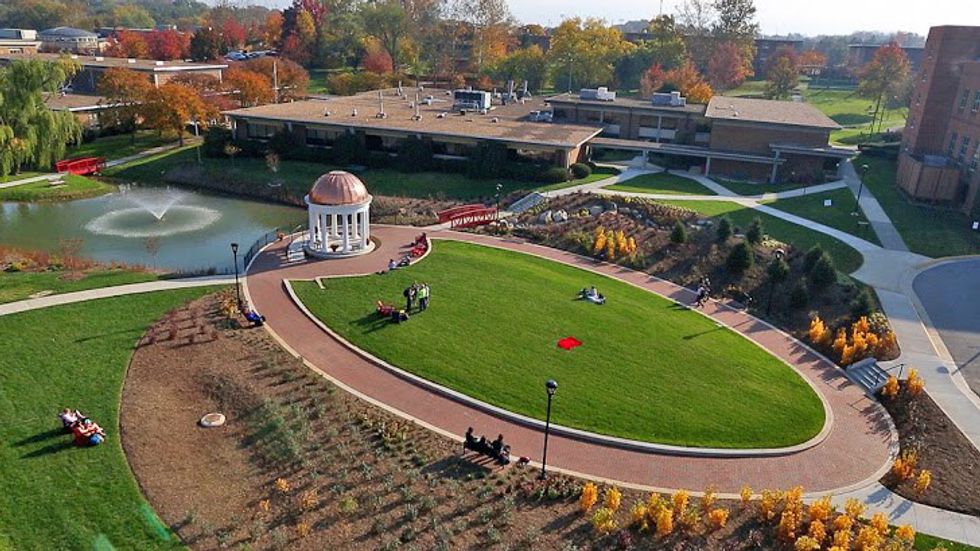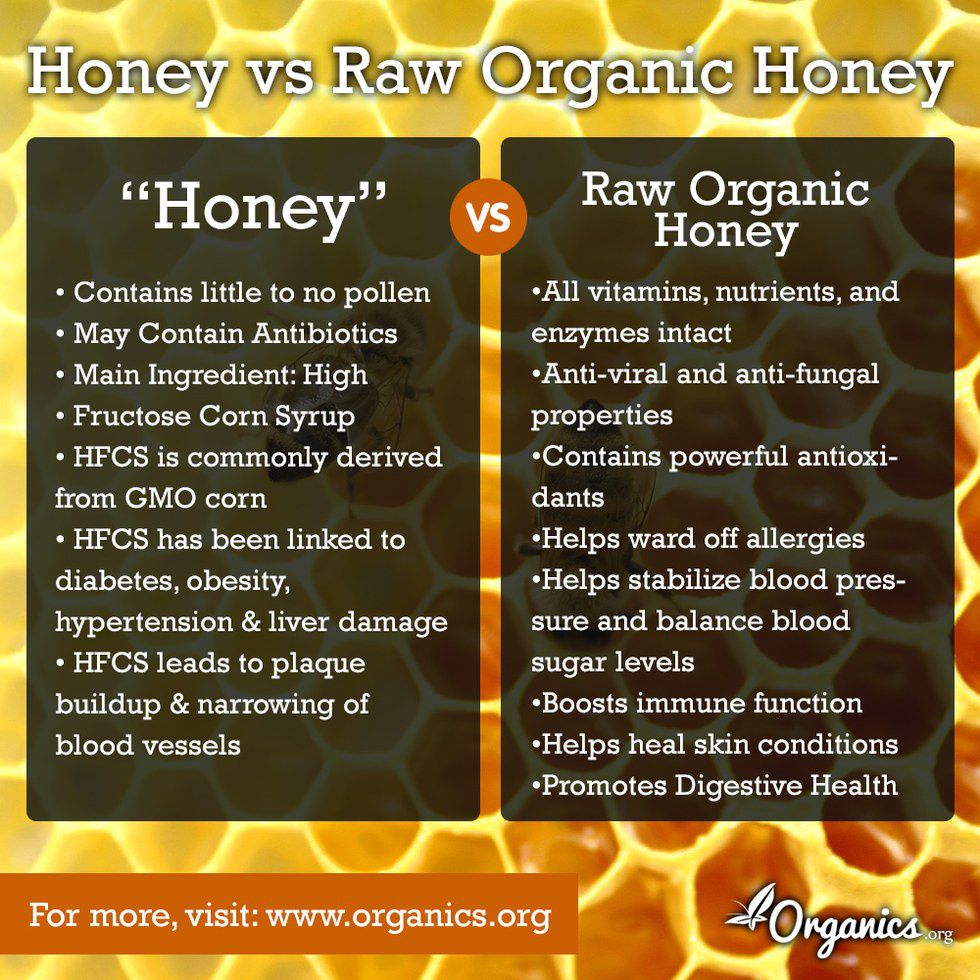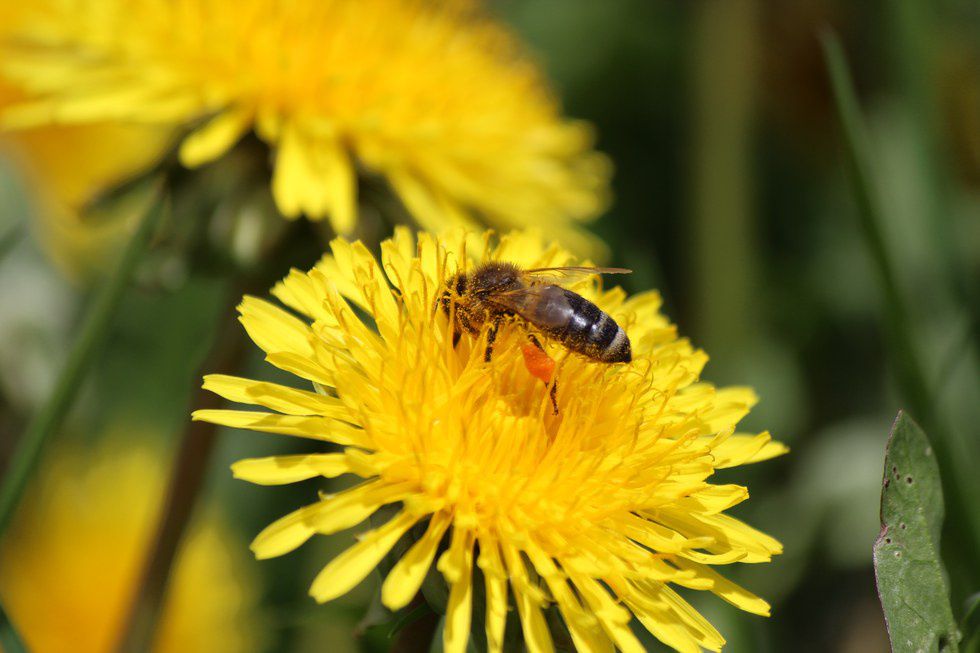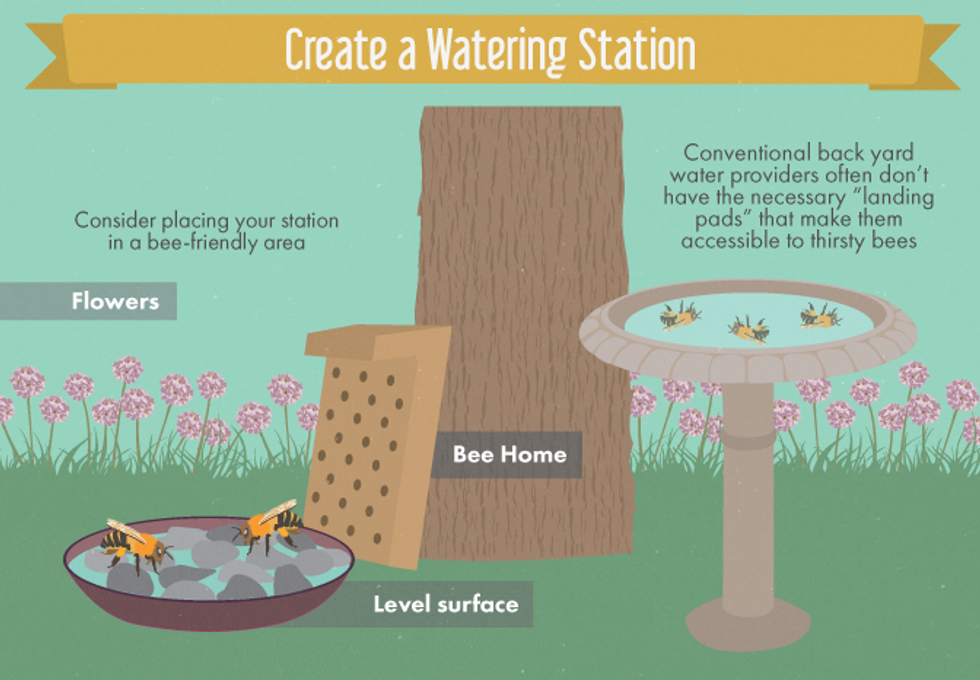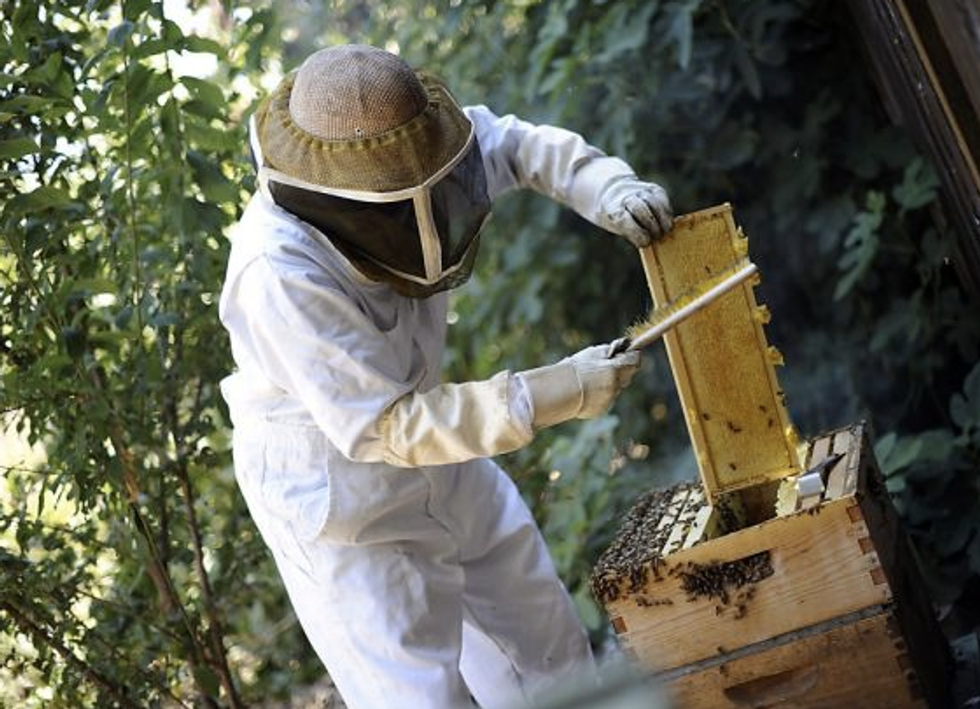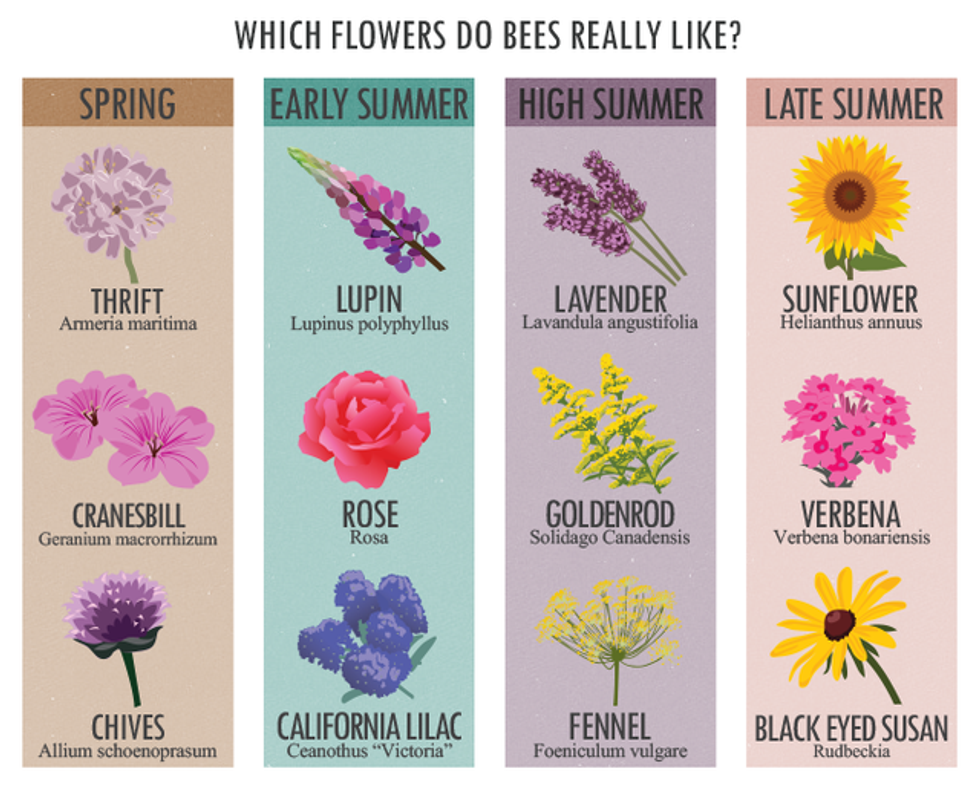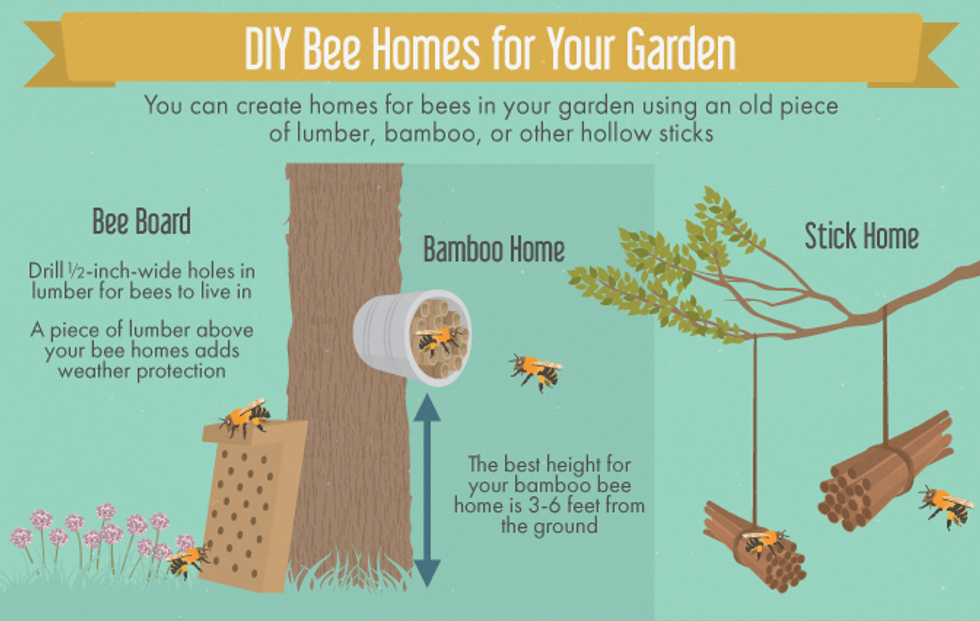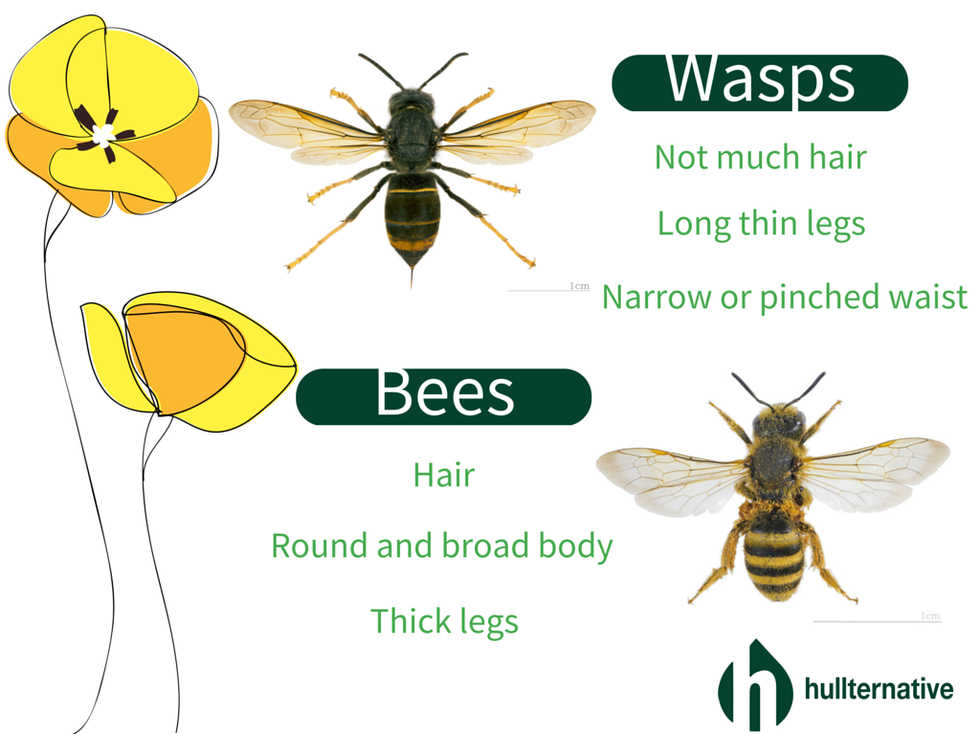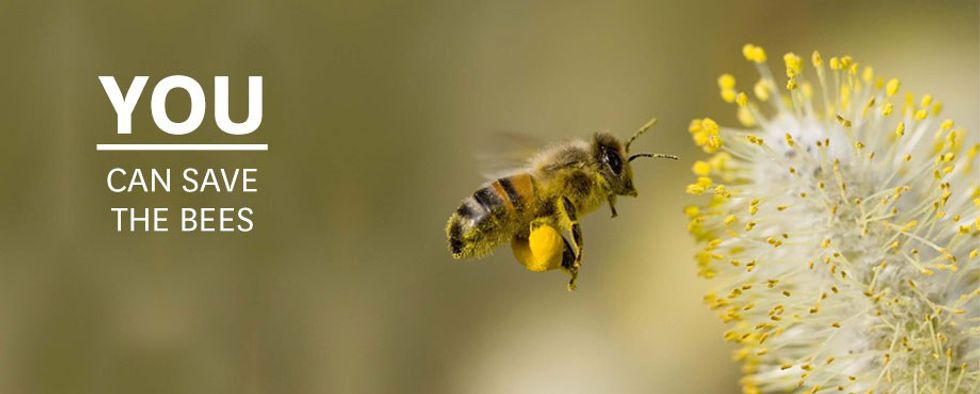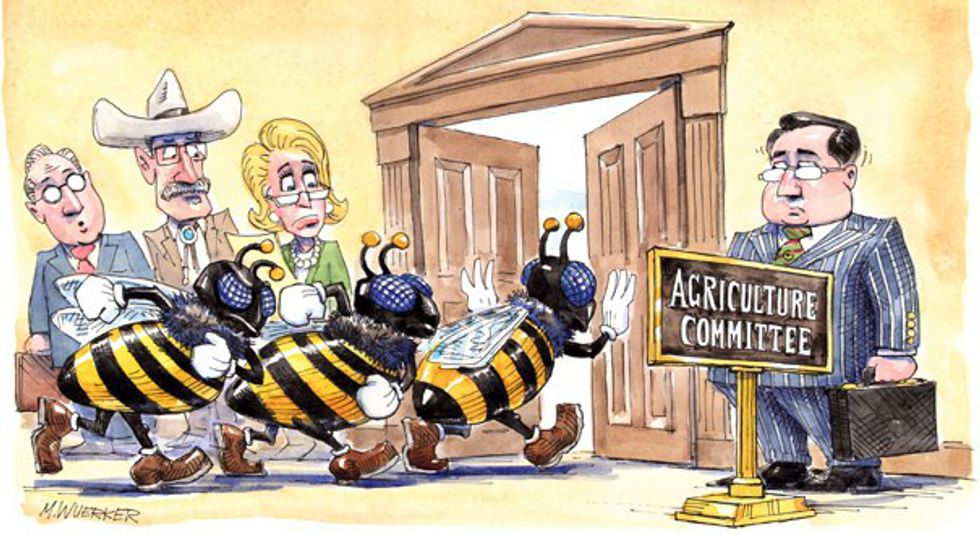We've all been hearing for some time now that the bee population is in serious peril. Colony Collapse Disorder (CCD), or vanishing bee syndrome, has plagued bee colonies across Europe and North America. Bees are dying off in staggering amounts, and the results are extremely sobering. While scientists and environmentalists are gathering important research to figure out what exactly is causing this issue, the situation isn't entirely out of our control. We can be taking steps to help the bees right now in our everyday lives. Here are some easy tips to help save our very important insect friends:
1. Encourage your school to eliminate pesticides.
While it may make your campus in the springtime appear greener and healthier, pesticides are one of the leading causes linked to the disappearance of our bees. And although you may not realize it, they are just as dangerous for us humans to be exposed to. Pesticides have been linked to a wide range of human health hazards, from short-term ailments like headaches and nausea to more serious health issues like cancer, reproductive harm, and endocrine disruption. Yikes! Natural gardening is a win-win solution: Chemical-free lawns will attract bees, and keep you healthy too.
2. Invest in raw, local honey.
Did you ever consider that there is a such thing as fake honey? The "honey" that we normally put in our tea actually contains harmful chemicals and antibiotics, which do your body no favors. On the flip side, raw organic honey has overwhelming health benefits, and it comes straight from the hive-- no factory plants or importation involved.
3. Start shopping organic.
I know, it's easier said than done. Let's face it: organic food is expensive. And as a college student with a limited budget, the only chance I can get to eat organic is when I'm home for breaks. However, we can choose to eat organic in a less expensive way. To eat organic also means to eat seasonally, which means you don't buy peaches or strawberries in the winter. In doing so, you reduce your carbon footprint significantly. While you may not have the cash to buy overpriced organic food at the grocery store, do yourself a favor and drive to your local farmer's market every once in awhile and pick up some fresh fruits and veggies (if they're in season they're likely to be cheaper because they didn't need a plane ticket to get there). Your body will say thank you, and so will the bees.
4. Embrace the weeds in your lawn.
Yes, you heard me correctly. Weeds are actually a good thing? Impossible! Believe it or not, the plants you spend so much time and energy trying to get rid of are actually a haven for bees. Wildflowers, clovers, and dandelions are some of the most important food sources for North American bees. Don't be afraid to put the shovel down and give the bees a much-needed feast.
5. Bees can get thirsty too!
We aren't the only creatures that need water to survive! If you start seeing bees milling around your lawn or college campus, do them a favor and put a small basin of fresh water outside (maybe add some stones for them to crawl around on, too!). In return, they'll stick around and keep pollinating your flowers! Friends helping friends, right?6. Support your local beekeepers.
For some, beekeeping is a wonderful hobby; for others, it's their livelihood. Commercial pressures and fluctuating bee populations have made beekeeping a lot more difficult.Do beekeepers (and their bees) a favor and buy their produce, and enjoy the many health benefits of eating raw honey that we discussed earlier. If you have children, take them to visit a beekeeper in action and get a wonderful educational opportunity out of it! If you are interested in beekeeping, search for the nearest local bee association that offers classes with natural approaches in your community.
7. Provide a habitat for bees.
Just like the rainforest animals are rapidly losing their homes due to deforestation, the bees are losing their habitat from intensive monoculture-based farming practices. You can help restore their habitat by simply planting flowers and herbs that attract bees during a variety of seasons. By doing this, you are providing a haven for the bees and a beautiful, vibrant garden for you. If you'e feeling crafty, you can also create DIY bee homes. If you're living on campus, get together with your fellow students and see if you can set up some bee homes around your school.
8. Understand that bees are our friends, not our foes.
I'm sure at one point or another we've all flailed around wildly in a desperate attempt to shoo away a bee that's crossed our path. Contrary to what the media tries to tell us, bees want nothing to do with us. They're harmless vegetarians whose job is to collect pollen and nectar to provide food for themselves and their beehive. Here's a list of some things that will prevent you from getting stung:
1. Stay still and calm if a bee is around you or lands on you. Many bees will land on you and sniff you out. They can smell the pheromones that come with fear and anger, and it can be a trigger for them to sting you.
2. Don’t stand in front of a hive opening, or a pathway to a concentration of flowers. Bees are busy running back and forth from the hive, and if you don’t get in their way, they won’t be in yours.
3. Learn to differentiate between honeybees and wasps. Honeybees die after they sting humans (but not after they sting other bees!); wasps do not. Wasps are carnivores, so they like your lunch-meats and soda. Honeybees are vegetarians. (Source: queenofthesun.org)
9. Spread the word!
It is up to us to spread awareness about Colony Collapse Disorder and help our tiny insect friends rebuild and repopulate. Look for solutions and commit yourself to doing some of the tips I've passed on to you today. Share informative articles, pictures, videos, and petitions on your social media platform. Also, check out the film "Queen of the Sun: What Are the Bees Telling Us?" for an in-depth look at the catastrophic disappearance of the bee population. Host a screening in your dorm and get other students talking!
10. Tell Congress what's going on.
There are petitions all over the internet advocating for the rights of bees. Sign them, pass them on, or create one of your own. As students, we may think we don't have the ability to impact change, but we absolutely do. Don't be silent-- start getting involved! The only way to see change is to make it happen ourselves. The bees can't do it alone.




